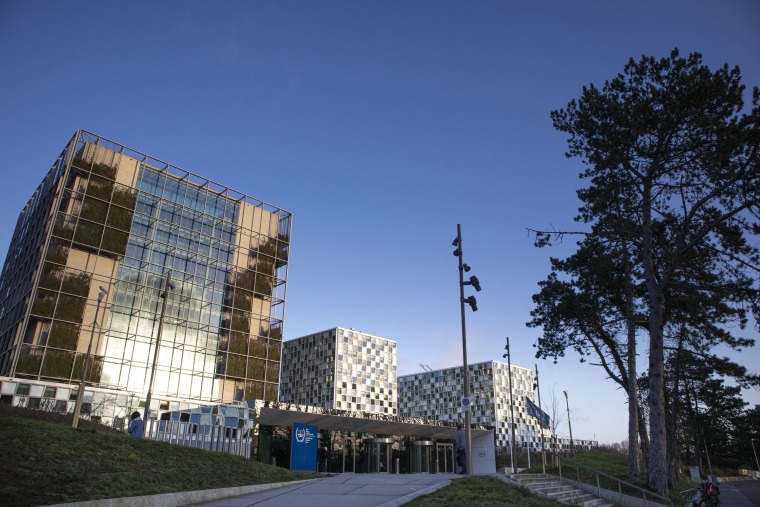The Trump administration launched an attack Thursday on the International Criminal Court, which is set up to prosecute war crimes and genocide, authorizing economic sanctions against officials investigating or prosecuting U.S. personnel without Washington’s consent.
The decision to slap sanctions on court officials comes after ICC appeals judges authorized an investigation in March into allegations of war crimes by U.S. military and intelligence personnel, Afghan forces and the Taliban in Afghanistan.
President Donald Trump also authorized the expansion of visa restrictions against ICC officials and their family members.
“The International Criminal Court’s actions are an attack on the rights of the American people and threaten to infringe upon our national sovereignty,” the White House said in a statement.
In order to place economic sanctions on these officials, the president had to declare a national emergency, using authorities more often reserved for pursuing terrorists or actions against North Korea and Iran.
The administration said it had “strong reason to believe” that there is “corruption and misconduct” at the highest levels of the prosecutor’s office, but provided no evidence to back up this claim.
In a statement, the ICC said that the U.S. move marked the latest "in a series of unprecedented attacks" on the ICC that constitute an "unacceptable attempt to interfere with the rule of law and the court's judicial proceedings."
"An attack on the ICC also represents an attack against the interests of victims of atrocity crimes, for many of whom the court represents the last hope for justice," it added.
The decision on the war crimes investigation by the Hague-based court in March overturned a ruling by a lower chamber last year that blocked the probe concluding, among other reasons, that its chances of success and prosecution were “extremely limited.”
The Trump administration has repeatedly lambasted the court.
Download the NBC News app for breaking news and politics
In April last year, Secretary of State Mike Pompeo announced that the U.S. would repeal or deny visas to International Criminal Court staff seeking to investigate Americans for crimes in Afghanistan or elsewhere.
The White House pointed out Thursday that the United States is not a member of the ICC and accused it of pursuing “politically-motivated” investigations against Washington and its allies, including Israel.
The White House added that it was concerned that “adversary nations” were manipulating the court by “encouraging these allegations” against American personnel.
Attorney General William Barr later specifically named Russia without providing details or evidence to substantiate the claims.
About U.S. forces, ICC chief prosecutor Fatou Bensouda’s office has said it has determined that there is a reasonable basis to believe that war crimes were committed by members of the U.S. armed forces in Afghanistan and by members of the CIA in secret detention facilities in Afghanistan and in other countries, particularly between the period 2003-2004.
It also determined that there is a reasonable basis to believe that crimes against humanity and war crimes have been committed by the Taliban and their Haqqani network and that war crimes were committed by the Afghan National Security Forces.
America’s war in Afghanistan — its longest — has raged for more than 18 years, costing the lives of around 2,300 U.S. troops and wounding many thousands of others.

